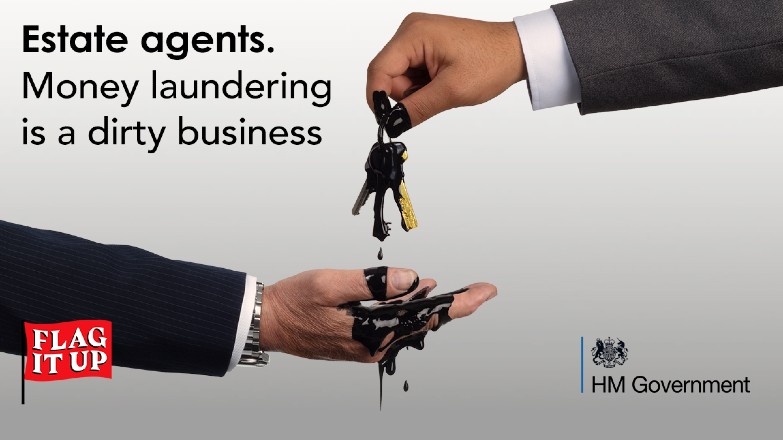
Anti-Money Laundering (AML) enforcement is high on the Government's agenda, and with stark warnings directed at estate agents last year from Security Minister Ben Wallace, it's imperative that estate agents know the law, know how to report suspicious activity and play their part in helping the fight against organised crime.
The minister warned that estate agents who disregard their legal duty to make such reports could be prosecuted under the Proceeds of Crime Act 2002, the legislation which sets out the primary offences relating to money laundering.
And make no mistake about it, the penalties are substantial. If you're involved in money laundering, you could face up to two years in jail and unlimited fines.
The case
Just this month, the National Crime Agency (NCA) has used proceeds of crime powers to seize property worth £1.7 million from associates of an organised crime group involved in drug supply in Staffordshire and the West Midlands.
The gang were sentenced at Stafford Crown Court in December for their involvement in a large-scale conspiracy to supply cocaine into an area stretching from Staffordshire to the Welsh Borders.
The group, which was led by the three Saeed brothers from Wolverhampton – Abdul, Mohammed and Shabaz – was jailed for a total of more than 50 years. A Civil Recovery Order by Consent was made at the High Court in London on Monday 14 January, leading to the NCA seizing recoverable property linked to Sukhjinder Kaur, 35, of Rugeley in Staffordshire and her brother-in-law Jasvir Singh, 45, also known as Lashman Chatha, under the Proceeds of Crime Act 2002.
The NCA alleged that Kaur laundered the proceeds of the crime group’s drug trafficking activities through purchasing property and was also engaged in mortgage fraud. This enabled her to amass a property portfolio worth over £2 million between 2010 and 2013, acquired in her own name and that of her company Lashman Estates Limited. The NCA alleged that the acquisitions were made at the direct control of her brother-in-law Jasvir Singh also known as Lashman Chatha.
Three of these properties had been specifically utilised by the Saeed crime group including one found to have an extensive underground cannabis factory.
The respondents denied any involvement in unlawful conduct, but they ultimately failed to provide any evidence or consistent account to demonstrate that the properties were funded from legitimate sources.
Based on the strength of the NCA’s case against them and in an attempt to avoid a lengthy trial, the respondents reached a settlement agreement resulting in the recovery by consent of six properties with an approximate net value of £1.7 million.
Andy Lewis, the NCA’s Head of Asset Denial, Civil Recovery and Tax Investigations, said:
“The powers that the National Crime Agency has under the Proceeds of Crime Act to seize property and other assets that we can show are linked to criminality often go under the radar. Our message today though is simple. We will utilise all the powers we have to relentlessly pursue those associated with criminality and in doing so will take away the very assets that criminal activity funds.
What you should be doing
1. Know how to spot the signs. Here are just a few of the more obvious signs of suspicious behaviour:
- Your clients are overly secretive or evasive
- Your clients refuse to provide all the necessary information and documents
- Documents appear to be falsified
- You've been instructed at a distance, asked to act outside your usual speciality, or offered an unusually high fee
For more examples go to the Flag It Up campaign's resources section for property, where you'll find a 'Red Flag' leaflet to help you spot the signs.
2. The company you work for should already have a Money Laundering Reporting Officer (MLRO) appointed and you should let them know in the first instance if you suspect something is wrong.
3. The MLRO will then submit a SAR to the NCA if they think your suspicions are founded. For advice on how submit good quality SARs, download the SARs guidance from the Flag It Up website.
4. Make sure you bookmark the Home Office's dedicated Flag It Up page, where you'll find lots of property industry specific resources available to download. There are customisable posters to print off to display in your offices to remind staff of the role they have to play and the action they need to take should they suspect something. There are also ready-made images to use on your social media channels. More resources will be added as they become available.
Remember! The information you supply could be the missing link that enables enforcement teams to bring those that perpetrate these crimes to justice.
Image attribution: "Ben Wallace Official MP Portrait" used under CC BY 3.0 / Cropped from original





